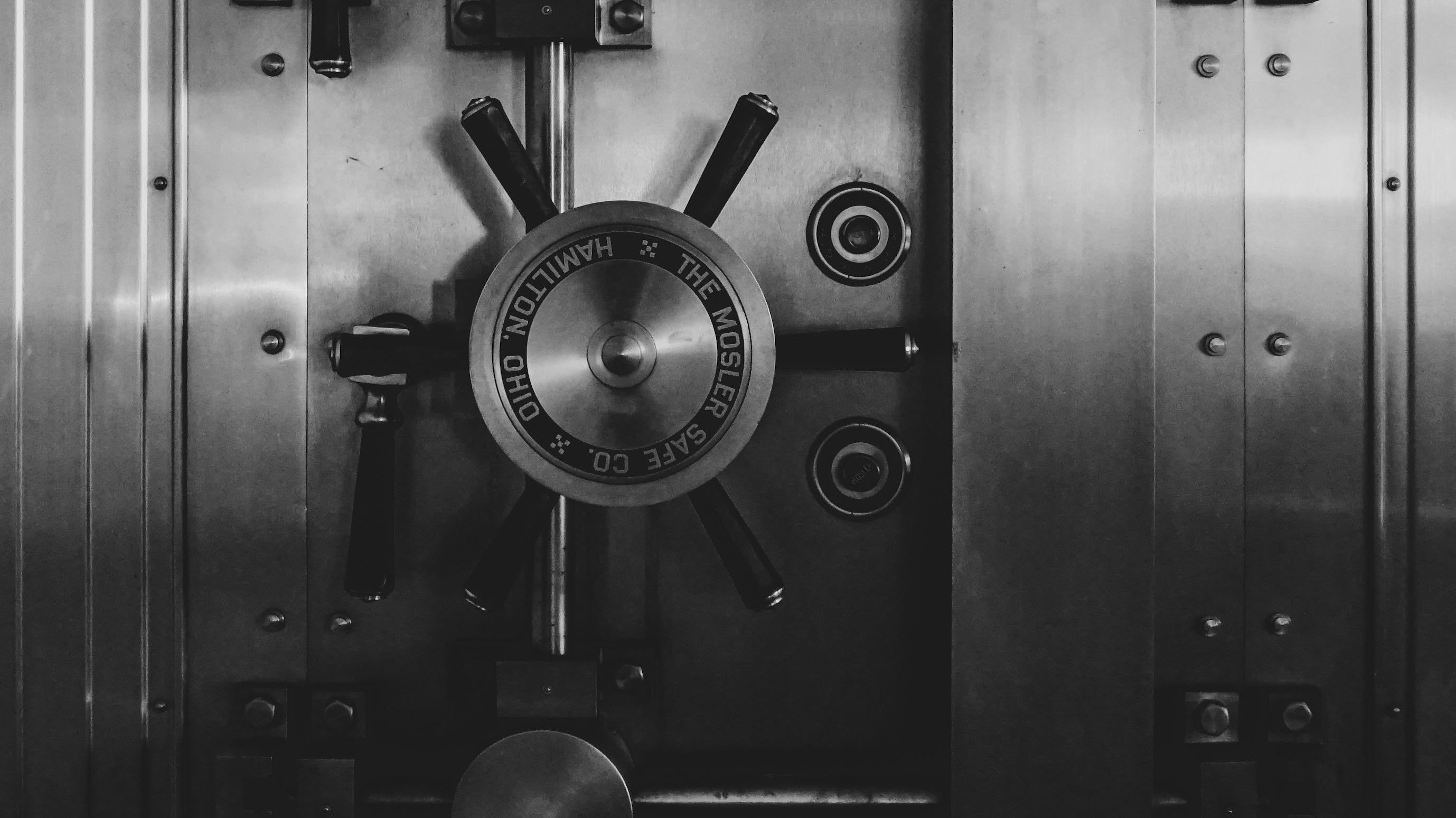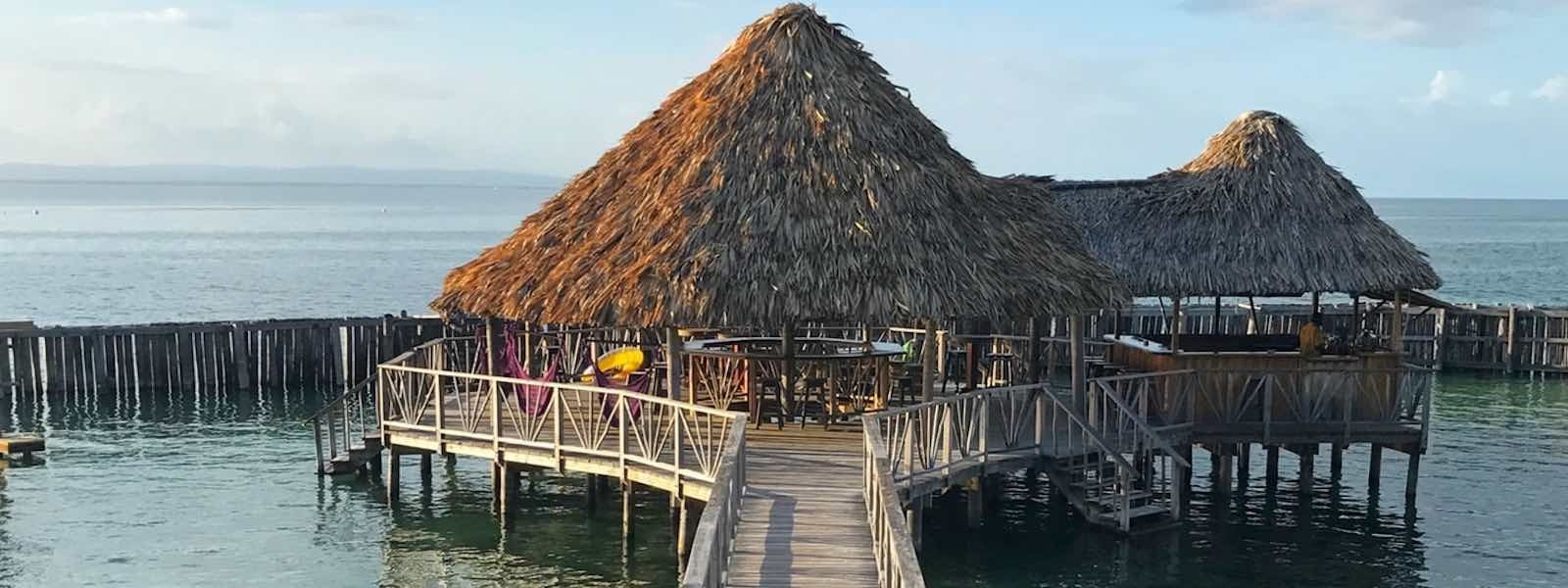Offshore Account Opening in an Overseas Bank
An offshore bank account refers to the use of banking services in a foreign jurisdiction, where the individual resides outside the jurisdiction where the bank is located. If you are a UK person with a bank in the U.S. for example, you are using offshore banking. The term offshore is really just used to separate domestic and foreign banks.
Many banking and financial services performed by institutions located in offshore environments differ from local domestic services primarily because of the jurisdictions' banking laws which allow for broader use of services with fewer regulations.
Offshore banks are regulated by laws defined specifically within each jurisdiction and exist as per their regulations. Each banking entity operates under a Banking License governed by that specific state or governmental authority. To exist as a banking institution it must also comply with international banking standards and regulations that must be meet regularly to continue dealing with correspondent banks.
An offshore bank operates in many ways like a traditional bank. An individual or corporate body can open an offshore account with a foreign bank outside of the country of their residence and have access to the same services such as deposits, payments, withdrawals, and online transactions.
The differences, however, are that offshore accounts benefit from a number of advantages that come from being located in international offshore jurisdictions.
Why Open an Offshore Bank Account?
Offshore banking in a foreign jurisdiction isn't as distant and exotic-sounding as the name sounds. By some estimates, there are nearly 3 million people in the United States who have foreign offshore bank accounts. So it's definitely catching on, but that's only 1% of the population, so it still hasn’t caught fire.
Many see the value in having a back-up-plan, a Plan B in case something goes wrong, but somehow using an alternative banking apparatus is still not seen as a solution for tomorrow's what if’s. Global offshore banking gives the ability to ensure your future. You become more autonomous in your ability to exist outside the confines of any one system; and
- should that economic system collapse (Venezuela)
- if your domestic assets get frozen (Cyprus)
- or if you get slapped with a lawsuit (1 in every 2 Americans);
You will have your offshore back-up-plan already in place.
Having an offshore bank account isn’t what the headline say it is. Its not about tax evasion, secret stashes of cash, or shady dealings, its about going to a country that is economically sound, politically stable, with a banking environment that is fully functional, where you are able to reap the benefits of establishing multiple financially secure asset structures.
Offshore banking doesn’t necessarily mean going to traditional tax-havens such Bahamas, the Cayman Islands or Vanuatu, though there are still opportunities to be had there, it also extends to financial centers in modern ‘onshore’ environments such as Hong Kong, UAE, Liechtenstein, Singapore, and Georgia.


Diversification with Foreign Jurisdictions
The simple fact is, there are many foreign jurisdictions that have banks that are safer, more fiscally sound and exist in a country that has a more durable economic outlook.
Banking systems in the West are abysmal for a number of reasons. If we take the US, for example, it suffers from a profoundly sick system controlled by the federal government, which has the highest debt in history, currently at roughly 20 trillion dollars.
The Federal Reserve is insolvent and it supports a system that allows local banks to engage in dangerous banking practices leaving them like 2008’s financial crises, overexposed with much greater liabilities than is safe and little capital reserves to meet deposits.
Should the economy turn and people start to withdraw their money, all it takes is a fraction of depositors, something like 3-5%, and many banks will not have enough capital should their investments fail to cover the demand for customers’ withdrawals- creating a perfect storm (think 2008 crises). After such a shock, it might be a signal to start looking for a more solvent banking alternative.
The Fragility of the Onshore Traditional Banking System
The Fragility of the Onshore Traditional Banking System
The financial crisis of 2008 showed how fragile the traditional banking system really is. In the US alone over 500 banks collapsed. Many regular individuals lost their life savings, investments, retirements, and mortgages. Over 10 million people in the United States alone lost their homes.
Europe did not fare much better than the United States during the global banking crises as Cyprus, Greece, and Hungary, all had massive banking failures, with governments ending up taking large swaths of cash from their citizens!
- Cyprus government taxed depositors,
- Greece imposed severe capital controls; and
- Hungary nearly ended private pensions.
If a bank has low-cash reserves and engages in risky investments, all it takes is a bump in the economy to send those investments tumbling, leaving the bank unable to cover deposits.
This is part of what happened in the sub-prime real estate mortgages in the United States. Banks were unable to cover their losses because they had lent money to people who couldn’t afford it, and when individuals defaulted on their payments, the banks found themselves overextended.
Do you Need A Foreign Bank Account?
Having offshore bank accounts is a perfect diversification strategy that gives you much-needed access to overseas banking structures that are much more aligned with safe and secure financial practices. There is too much to lose by having all your funds stored in the banks that engage in dangerous financial practices - as they are gambling with YOUR MONEY!
Offshore banking offers a wealth of opportunities that offer insurance against the negligence of an irresponsible system. Here are 8 Advantages explaining why you need an offshore bank account.
Advantages of Foreign Bank Account
Advantages of Foreign Bank Account

1. Foreign Banks have Higher Liquidity
Some offshore private banks are 100% liquid, that means they keep all of their assets on hand and do not lend out your money
2. Don’t put all your eggs into one Basket, Diversify Your Wealth
Protect your wealth from domestic political or economic fluctuations by diversifying your assets across jurisdictions and accounts. This allows for a stable long-term savings portfolio that will not be affected by the downturn of just one economy.

3. More Stable Banking Systems in Foreign Jurisdictions
Out of the worlds top 50 banks only 3 were in the US.
4. Generate Higher Interest Rates in an Offshore Bank
Foreign jurisdictions and banking systems offer much higher interest rates than typical US or UK banks.
Even many banks around the world abysmal rates, for instance, Germany and Japan have negative interest and have had those rates for years; meanwhile, banks in India can have upwards of 6-7% with fixed-term deposits upwards of 18% and Georgia has 6% rates with fixed-term deposits at 14%

5. Higher Returns in Global Investment Funds
Offshore foreign accounts give you greater access to banking and financial services typically not available to domestic banks.
6. Hold Multiple Currencies
Some offshore banks allow for upwards of a dozen different currencies so that your assets aren't tied to a single country and its fluctuating currency

7. Asset Protection from unscrupulous lawsuits
Protect your assets from predators by having separate foreign banking laws to shield you from malicious parties
8. Greater Levels of Banking Privacy
Prevent your name and details to be easily associated with your assets by using an offshore company setup to hold the account.
Although there is no such thing as absolute secrecy in this age, there are measures that can be effectively taken to make your assets more private and less open to the public gaze
Global Banking Regulations: Some Considerations
Consideration should be placed on how important banking secrecy is above other factors for your type of business. This may depend on your country of residence and what information-sharing agreements it may have.
FATCA
As of 2014, the United States Foreign Account Tax Compliance Act (FATCA) makes it very difficult for any U.S. citizens or residents to obtain any type of banking secrecy. This is due to the United States reporting obligations forcing foreign banks to send tax information regarding any assets held by a US citizen. If they refuse they risk losing their banking ties with American correspondent banks, being blacklisted and essentially cut off from all American capital.
U.S. citizens have for several years now been required to report their ownership of any foreign held account with deposits of more than US$10,000 through FBAR. The only thing that has changed is that now the United States government has made it much more difficult for individuals and their corresponding banks to get away with not reporting their foreign accounts.
CRS
For many other countries (106 as of 2019) there are other pieces of legislation drafted by the OECD known as the Common Reporting Standard (CRS) that have been widely enacted in an attempt to encourage the Automatic Exchange of Tax Information. These new pieces of legislation have changed the privacy of global banking; as a result, we can not recommend to anyone who now tries to hide money away from the government.
Banking offshore is not about hiding but global tax restructuring. This legislation, along with the threat of being excommunicated from the global banking system, has, as a result, made the global banking system much more transparent. That is not to say that there is no such thing as privacy. There definitely is. It will just not be available to everyone and must be carefully structured, as it will depend upon the individuals:
- Citizenship
- Tax residence
- Nature of their business; and
- The offshore jurisdiction
Differences Between an Onshore and Offshore Banking
Despite all the misinformation out there on offshore banking, they act like any other traditional domestic checking or savings account. While we have assumed that local banks are safer and more secure because they exist just down the road, the reality is that your assets may be exposed to unnecessary risk.
Just because you can walk down the street and withdraw money from your home branch does not mean that your assets are safe and sound. Bank accounts are digitally recorded on global servers around the world. That goes for your small town bank and your big international commercial banks. Both types of banks store assets on the same types of global servers and actually care very little cash on hand.
In fact, foreign banks would be more likely to have your cash on hand rather than your local bank due to more stringent reserve requirements, whereas your local neighborhood bank likely has your money parked somewhere else. You might then ask, well why then do most people bank locally? The answer is that, generally speaking most people do not know there is any other alternative.
- An offshore bank account is easier to establish than ever. With the quick digital access of information, you can open an offshore bank account online, with minimal documents from the comfort of your couch.
Though it may be much easier than ever before, the environment is more difficult to navigate due to all the changes taking place. Global banking laws are tighter and constantly evolving with many new regulations, plus offshore banks are more hesitant to take clients who have certain shell companies or holding companies formed in non-compliant jurisdictions, fearing being blacklisted by the OECD, tariffed by the US or bullied out of the global banking system by correspondent banks.
Not that this vastly changes things for most people per se. What it does mean is that individuals should seek professional guidance from an offshore tax professional or consultant and conduct thorough research to make sure you are getting it done right.
Who Needs a Foreign Bank Account?
1. Anyone Who Wants Security
Having an account offshore allows you to diversify your assets by having an account outside of the country where you live, in a different banking system with separate laws and regulations that govern it.
This provides for a layer of security so that creditors and frivolous lawsuits cannot get access to your assets very easily. Court orders are most often only respected within the country where they are made, which means that having funds in a second country outside of where you live gives you the added protection that comes when you have assets in a second separate legal system.
2. Anyone Wishing to Protect Wealth From Political or Economic Instability
Asset protection shields assets from domestic threats. If you live in a country that is prone to authoritarian policies, is governed by a corrupt bureaucracy, or is economically unstable then storing your assets in a different part of the world is not a luxury but a necessity.
Political and economic uncertainty is never a secure environment for holding assets. By placing them in a stable jurisdiction, you can help insulate your wealth from political, economic, and social insecurity.
3. Anyone Wanting to Protect Wealth From Lawsuits
If you are a doctor, lawyer, politician, or in the public limelight, you are at greater risk of being targeted by unscrupulous parties.
Anyone can be sued for any reason making it important to protect yourself from potential frivolous legal action. Creating an LLC together with a corporate account is a widely used method that increases the level of protection by creating a separation of powers so that you as a person are separate from the assets held in the account.
4. Anyone Planning for a Plan B
Having a plan B is about having a backup plan in times of emergency. There are many different ways to create a plan B, but the single most important thing you can do is open a bank account in a country outside of where you live.
A plan B allows you access to life-saving assets in case of an emergency. By having an account in a stable and secure jurisdiction, you can help to ensure that you will have access to your money when you need it the most. Local courts have the ability to freeze or garnish assets which makes you vulnerable, especially if all of your assets are held in a single account.


5. Anyone Interested in Competitive Interest Rates and Investment Opportunities
Foreign Banks often offer more competitive interest rates. For example, banks in the US or Japan offer interest rates that are abysmally low, whereas opening a bank account in a country around the world gives you access to some of the most competitive rates available.
Many investment opportunities are only available to individuals or entities in specific countries. If you are American, many investment funds are off-limits. A simple workaround is to create a foreign entity that holds the assets to be invested.
6. Anyone Interested in Privacy
Privacy is a form of security. Keeping your financial affairs private doesn't mean evading taxes, or defrauding the government, but is about keeping your records private from the public. Keeping your records discreet is important for anyone looking to keep their wealth from prying eyes.
Many countries such as Cook Islands, Nevis and Panama have strong banking secrecy laws which make it a crime to divulge personal account information unless there is a criminal investigation.
7. Anyone Wishing to Reduce Taxes Legally
Tax reduction is not as easily achieved but may be possible if you live in a country outside the CRS. Tax reduction is not a simple formula but can be possible if you live in a country that is not a member of the Common Reporting Standard (CRS).
8. Anyone Wishing to Create a Nest Egg
The backbone of any wealth strategy is diversification. Having a diversified bank account in a different currency, banking institution and country ensures that you will survive any form of fluctuation in the currency, markets or economy.
Holding multiple currencies in several banks and countries around the world ensures that no single event, whether an economic collapse, currency fluctuation, or banking failure, will affect your economic well-being.
What to Look for in an Offshore Bank?
There are potentially many things one could look into when opening an offshore bank account. One of the most important things to look for when choosing a foreign country to bank in is economic and political stability. Finding a secure and stable country is about as important as the bank itself. What good is a secure bank in a lousy unstable country?
In fact, the very reason you might be wanting to go offshore in the first place is to find financial security, and so make sure to do your due diligence before you decide your destination. Some other things that are worth investigating before you go offshore:
- The amount of debt the bank is carrying
- The amount of derivate exposure it has
- The debt of the governing institutions and central banks as well as the primary backer - the government.
- How liquid is the bank (how much cash on hand do they have)
- Solvency (by what % can a banks assets drop and still have their assets be greater than their liabilities)
- Corporate culture (think scandal-ridden Wells Fargo.)
This should all give a pretty clear picture as to the nature of the system that governs banking policy. While shopping around to find the best offshore banking jurisdiction some important questions that you should ask yourself so that you can find the right match for your particular unique situation are:
- What are my motives for opening an offshore bank account in the first place?
- How many currencies?
- Are there any tax laws to be aware of? (...think CRS, DTT, TIEA, FATCA)
- Is it possible to reduce my worldwide taxation by banking in a specific country?
The answer to any one of these questions and you will begin to find a suitable jurisdiction and banking situation that will match your needs.
Different Types of Accounts
There are many different types of offshore accounts. For clarity's sake, we will be making a distinction only between two different types of offshore banking accounts that generally operate differently.
Commercial or Business Bank Accounts
Type 1: These are ordinary current or savings accounts for standard commercial or personal usage.
These are generally are used for business transactions that have a steady inflow and outflow of assets. They can be started with minimum balances from a few hundred to a few thousand dollars.
They are designed for those that need a secure location to place assets and to receive payments, transactions, commissions or dividend payments. Investment options are usually limited with little or no personalized banking services or investment portfolio management. However, some banks do offer in-house brokerage facilities as well as other investment options.
Type 1 Packages: Typically this comes with our Offshore Corporate Packages, whether it is a Company, Foundation, or IBC & Foundation Combination Packages, they usually can include a ‘Type 1’ offshore account and offshore debit card. Our entry-level accounts with these packages make for a suitable entry-level option for clients from all over the world. They provide:
- Comprehensive internet banking service
- Debit cards
- Checking and savings accounts that pay higher than normal interest
- Variety of innovative investment offerings
- Privacy
- Currency diversification
Many clients need EU corporations because of the requirements of EU based merchant credit card processors or for marketing reasons. In this case we usually recommend Cyprus or the U.K. (LLP) as tax-free incorporation options along with an account in an EU jurisdiction.
Private Bank Accounts
Type 2: Private banking accounts that specialize in private investment banking requires a higher minimum opening.
Generally, assets are transferred rarely and do not have a high volume of transactions, although a private account can be paired with a commercial account. In most cases they require starting balances of at least USD 100,000 with upwards of 1 million USD. They provide more personalized services and investment portfolio management. With a wider variety of investment options beyond just simple term deposits, and in many cases 'in house' investment products.
Type 2 Packages: This is an ideal option for those that have a nest egg that they wish to preserve in the safest, private and conservative way possible for the long term. It is not a good choice where funds need to be moved in and out on an ongoing basis.
Private Banking services are traditionally exemplified by Switzerland, but also Andorra, Liechtenstein, Austria as well as Singapore and Panama. These types of banks usually require a personal visit although if the deposit is large enough they will come and visit you.
We also can arrange for accounts in other jurisdictions on a case-by-case basis. In many instances, this has to be done in conjunction with incorporation executed in the same jurisdiction. Typical examples are a Seychelles corporation along with a Seychelles account or a Hong Kong corporation along with a Hong Kong account.
How Much Does it Cost to Open an Account?
Opening an offshore bank account is very affordable. In fact, one can usually do so with as little as several hundred pounds with minimal documentation in as little as a few days.
Some foreign accounts have minimum balances of as low as 300 USD and up to 5,000 USD. Though one may ask, 'ok where's the catch, how do offshore banks make their money?' Good question, with a very simple answer.
They generally make their money on transaction fees as having low-overheads allows them to give more benefits and higher returns.
They also usually provide a wealth of other financial services, in-house investment options, wealth management and brokerage accounts, where they make a substantial share of their profits. The fact is offshore banking accounts have always been readily available, even for individuals without a considerable nest egg. And today, with readily available information, it is easier than ever.

How To Open An Offshore Bank Account Online Remotely

Personal Bank Account Requirements
Opening an offshore bank account is much simpler than its often made out to be. Despite all the negative associations an international bank account has many similarities as your traditional onshore domestic bank.
- Copy of passport
- Proof of address (utility bill)
- Professional Reference
- Proof of Funds
Additional requirements that may be needed depending on the jurisdiction:
- Letter from your Bank
- Business Plan
- CV
There are a few more additional requirements needed if one opens a corporate bank account
Corporate Account Requirements
The requirements for opening an account typically vary from one bank to another, but some documents are common for all. The common requirements for corporate accounts typically include the following:
- Original or certified copies of the corporate documents - issued by the appropriate regulatory authority (Memorandum & Articles of Association/By-laws), Certificate of Incorporation.
- Certificate of Good Standing - Needed if the corporation is older than one year).
- One bank reference letter for each signatory - References need to be on the letterhead of the referring bank and simply need to state the length of the relationship and something positive about it. Most banks will have their own approved formats.
- One professional reference letter - This includes a reference who is a lawyer, accountant etc. or business reference letter as above.
- Legible copy of passport - With apostille for each authorized signatory, beneficial owner and director on the account.
- Proof of Address - This is a utility bill, credit card statement, mortgage statement, local authority tax bill from within the last 60 days).
- Business plan - Most banks require an overview of the business.

Our Favourite Offshore Banking Jurisdictions
Our Favourite Offshore Banking Jurisdictions
While there are an innumerable number of banks in the world, with many offering account openings for non-residents, there are a select few that are popular. We have selected the best countries to open an offshore bank account based on their popularity, cost, ease of opening an account, and overall offshore financial services.

1. Switzerland - Known for Private HNWI Bank Accounts
Switzerland remains a top choice for offshore banking due to its reputation for security, privacy, and tax efficiency, especially for high-net-worth individuals. Swiss banks offer diverse investment options, multi-currency accounts, and are known for their stability, strict regulatory practices, and confidentiality, though complete anonymity is no longer possible.
Opening an account as a non-resident can be challenging and often requires a substantial minimum deposit, with the process being smoother in-person but possible online for those who meet stringent criteria. U.S. citizens face additional reporting hurdles, and it’s recommended to consult an expert for guidance through the complex application process.

2. Cayman Islands - Known for Investment Accounts
The Cayman Islands is a leading offshore financial hub, attracting international clients with its tax-neutral status and robust asset protection laws. As one of the world's largest offshore banking centers, it offers stable economic and political conditions, making it an attractive choice for investors and corporations.
The jurisdiction's sophisticated financial services sector includes top global banks and investment funds, providing clients with diverse and profitable opportunities. Despite global regulatory shifts, the Cayman Islands maintains a strong reputation, balancing transparency with confidentiality, making it a premier choice for offshore banking.

3. Singapore - Great for Security
Singapore is a premier choice for offshore banking, attracting high-net-worth individuals with its stability, efficient services, and tax advantages. The jurisdiction offers a range of investment opportunities and multi-currency accounts, allowing investors to diversify their assets and hedge against currency risk.
However, opening an account in Singapore requires significant capital, and the process can be challenging for foreigners, especially U.S. citizens, due to strict regulations and high entry requirements. Despite these hurdles, Singapore remains an ideal destination for those who can meet the criteria, offering secure and reputable financial services.

4. Belize - Popular Bank Account
Belize is a popular destination for offshore banking due to its ease of account setup and stable financial environment. It offers significant privacy, asset protection, and options for remote account opening, making it accessible to a wide range of investors.
However, Belize lacks the high-end services seen in other prestigious jurisdictions, and recent tax regulation changes have made it less attractive as a tax haven. While suitable for investors seeking affordability and security, high-net-worth individuals may find other offshore banking centers better aligned with their needs.

5. Panama - Our Favourite
Panama is a top offshore banking destination known for its tax benefits, confidentiality laws, and use of USD as the primary currency. While it offers asset protection and flexible corporate structures, including options to pair with trusts from other jurisdictions, recent regulations under FATCA and CRS have reduced anonymity for foreign account holders.
The banking system is stable and accessible, particularly for North and South American clients, and Panama provides a pathway to residency through the Friendly Nations Program. However, opening an account requires extensive documentation and in-person visits, making it more challenging than in the past.
Read More
Banking Introductions from Offshore Protection
We specialize in providing offshore solutions for our clients without needing a personal presence. For private banking and specialized banking services usually, a physical presence is necessary. We form relationships with financial institutions of all types that prefer to deal with introductions from a law firm rather than with persons who contact them directly.
Offshore Bank Account Update: If you are looking for privacy and asset protection we recommend offshore business accounts. Offshore personal accounts do not offer the privacy and asset protection you are looking for. We suggest using offshore corporate accounts or a private Swiss account. Get in touch for more info.
We offer banking solutions with the following partnering banks:

























